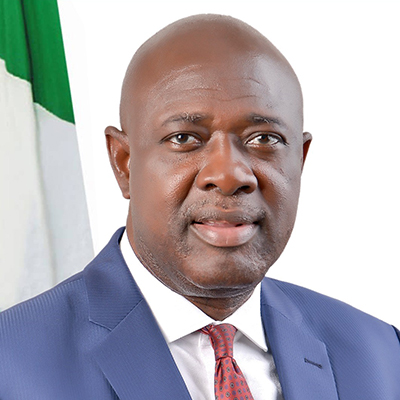
The National Agricultural Land Development Authority (NALDA) has taken bold steps to strengthen Nigeria’s food production and job creation efforts through targeted agricultural projects. This approach aligns with President Bola Ahmed Tinubu’s renewed focus on food security, and it is already yielding results across several states.
NALDA’s agriculture initiative is fast becoming a model for rural transformation in Nigeria. Its efforts were recently showcased during a visit by the Executive Secretary, Prince Paul Ikonne, to several sites in Borno State. At these locations, NALDA has developed integrated farms and housing projects that are creating employment and helping young Nigerians find purpose through agriculture.
During his visit, Ikonne said the initiative was designed to engage youths in productive farming and reduce unemployment. He added that NALDA’s programs were also helping to reduce rural-urban migration by making villages more livable and economically active.
One of the key features of the NALDA agriculture initiative is the integrated farm estate model. These estates offer livestock farming, crop cultivation, fish ponds, and processing centers. They are built with housing units for workers, making it easier for them to live and work within the farms. The estates are helping farmers increase their output, and young people are being trained and empowered with tools, land, and access to markets.
In Borno State, the 100-hectare farm estate in Bama has changed lives. Many young returnees who were displaced by insurgency now have stable incomes. They work daily on the estate and take pride in their contribution to food production. Similarly, in other states like Abia and Katsina, NALDA’s projects are creating value chains and encouraging investment.
Ikonne stressed that the President’s support has been key to NALDA’s achievements. According to him, the federal government’s political will is driving the agency’s ability to recover abandoned lands and convert them into productive assets. These lands were previously unused, but they are now producing maize, rice, vegetables, and animal feed.
Farmers and community members are happy with the initiative and say their lives have improved. One beneficiary, who spoke at the Bama farm estate, said she had never imagined owning a poultry business, but now she has one and earns money every week. Her story mirrors those of hundreds of other beneficiaries.
NALDA is also providing solar-powered boreholes, training centers, and basic amenities within the farm estates. This setup reduces overhead costs and improves the quality of life for those living and working on the farms.
While addressing the media, Ikonne called on state governments to partner with NALDA and provide more land for expansion. He said the agency had the resources and expertise to scale the model to more communities. He emphasized that food security cannot be achieved without collaboration.
The NALDA agriculture initiative is making a visible impact. By promoting sustainable farming and offering real opportunities to young people, NALDA is not just planting crops. It is also planting hope for a stronger and more secure Nigeria.



